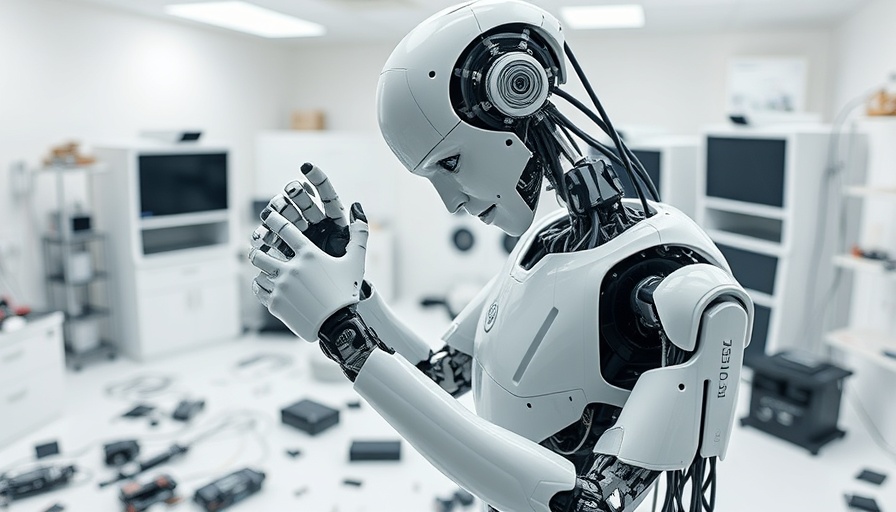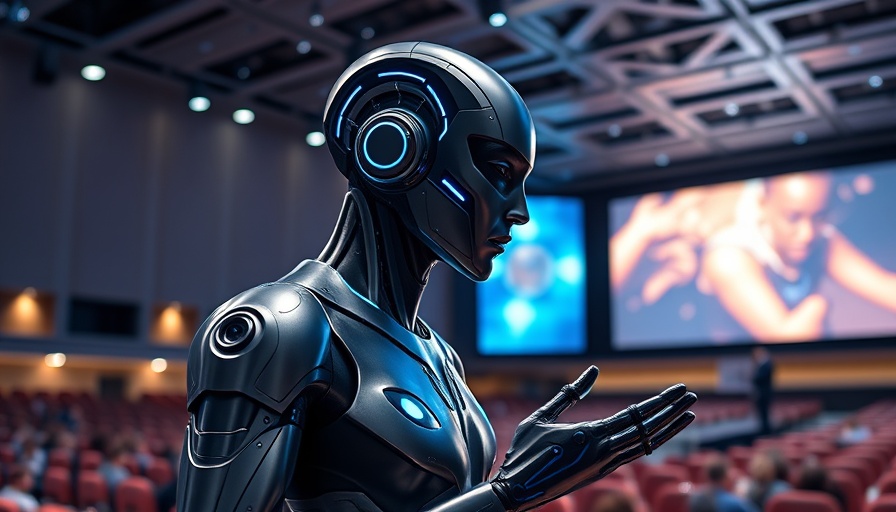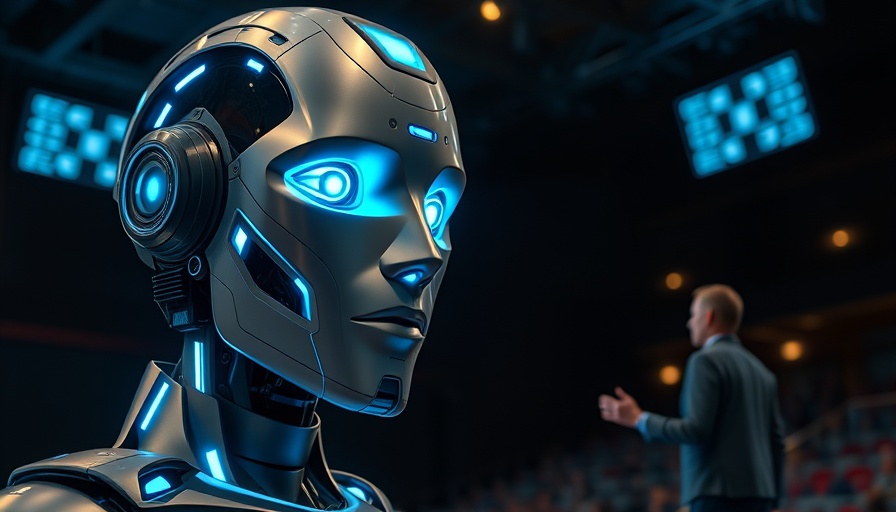
Meet the Future of Robotics: Self-Healing and Adaptive Machines
In a groundbreaking revelation from researchers at Columbia University, the world of robotics has embraced a revolutionary concept that resembles the mechanisms of biological life—self-healing and self-growth through a process they cleverly dub "robot metabolism." This innovative technology redefines the way we perceive robots and their capabilities. Unlike traditional robots that function as static systems, these newly designed machines can repair themselves, grow stronger, and evolve dynamically by consuming other robots.
In 'The First Self-Healing CANNIBAL AI Robot That Grows by EATING Other Robots,' the discussion dives into the fascinating realm of robot metabolism, exploring key insights that sparked deeper analysis on our end.
Understanding Robot Metabolism: A Game Changer
The premise of robot metabolism is simple yet transformative. In traditional robotics, if a machine breaks or requires maintenance, human intervention is necessary. However, using a building block known as a truss link, researchers have crafted a modular system that allows for self-repair and growth. By integrating a network of these interconnected truss links, robots can alter their structures in real-time, adapting as needed and increasing efficiency. For tech founders and investors in Metro Detroit, this concept represents a remarkable advancement in robotics—showcasing a potential paradigm shift in robotics applications from construction to disaster recovery.
Performance Analysis: Robots That Crawl, Consume, and Adapt
The prototypes have been tested under various conditions to demonstrate both their self-repair capabilities and their metabolic process. For example, a tetrahedrin—a complex shape formed by these truss links—was observed to actively consume other links in its environment. Upon ingestion of a complementary component, it not only grew but also enhanced its mobility significantly, moving 66% faster down a slope than without the additional link. This baseline performance can inspire innovations in autonomous systems designed for difficult terrains or disaster zones.
Real-World Implications for Michigan’s Tech Landscape
For stakeholders within the Michigan tech ecosystem, this development opens a plethora of opportunities. As we witness the convergence of automation and AI technologies, self-sustaining robotics could reshape how industries like manufacturing, healthcare, and even urban infrastructure maintain and evolve over time. The emergence of such technology could stimulate investments in Michigan’s innovation hubs and lead to exponential growth for local startups focused on robotics and machine learning, thus participating in the momentum of emerging technologies like AI, IoT, and cloud computing.
Breaking Down Barriers: A Modular Approach
These advancements have their roots in how biological systems utilize modular components, like amino acids. The truss links—each featuring magnetic connectors that allow them to snap together easily—serve as a clear metaphor for how modularity fosters adaptability. This design strategy echoes the principles of modern software development, parallel to the way companies in Metro Detroit are fostering the growth of agile software solutions. Emphasizing modular robotics may further enhance Michigan's venture funding landscape, sparking interest from investors keen on supporting next-gen tech startups.
What Are the Future Implications for Robotics and AI?
While the current prototypes may seem limited compared to complex humanoid robots or autonomous systems, they represent a stepping stone toward a future where machines can act intelligently in unfamiliar environments with little to no human oversight. As the paradigm shifts, ensuring these robots can make informed decisions—potentially equipped with advanced sensors—will be necessary. For instance, supporting Detroit tech events could be pivotal in discussing the broader implications of this technology and nurturing innovation across the robotics landscape.
Next Steps: Embracing Change in the Tech Ecosystem
As we ponder the implications of self-healing robots, it’s essential for tech professionals and entrepreneurs within Metro Detroit to engage in discussions about their potential use cases and ethical considerations. Joining local coding bootcamps or incubators can provide invaluable insights into how to harness these emerging technologies. Furthermore, understanding the risks and ethical dilemmas associated with autonomous machines will ensure that this innovation can enhance societal progress rather than pose threats.
As experts engage with these advanced systems and research the principles behind robot metabolism, it becomes essential to foster educational dialogues on robotics, digital transformation, and AI in our local communities. We stand at the forefront of a technological evolution that invites us to embrace the future with curiosity and caution.
Curious about how to harness the power of robotics and AI in your own ventures? Explore the possibilities today. Stay connected with the latest updates and take action towards pioneering technological advancements in Michigan!
 Add Row
Add Row  Add
Add 



Write A Comment